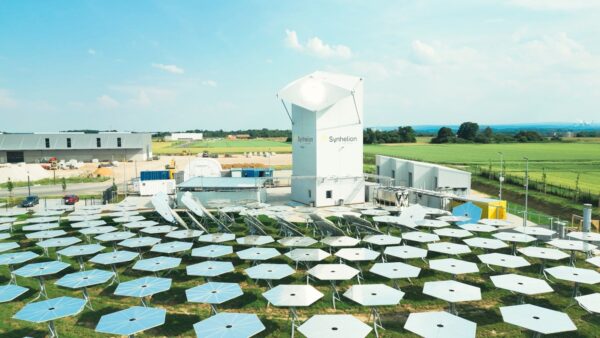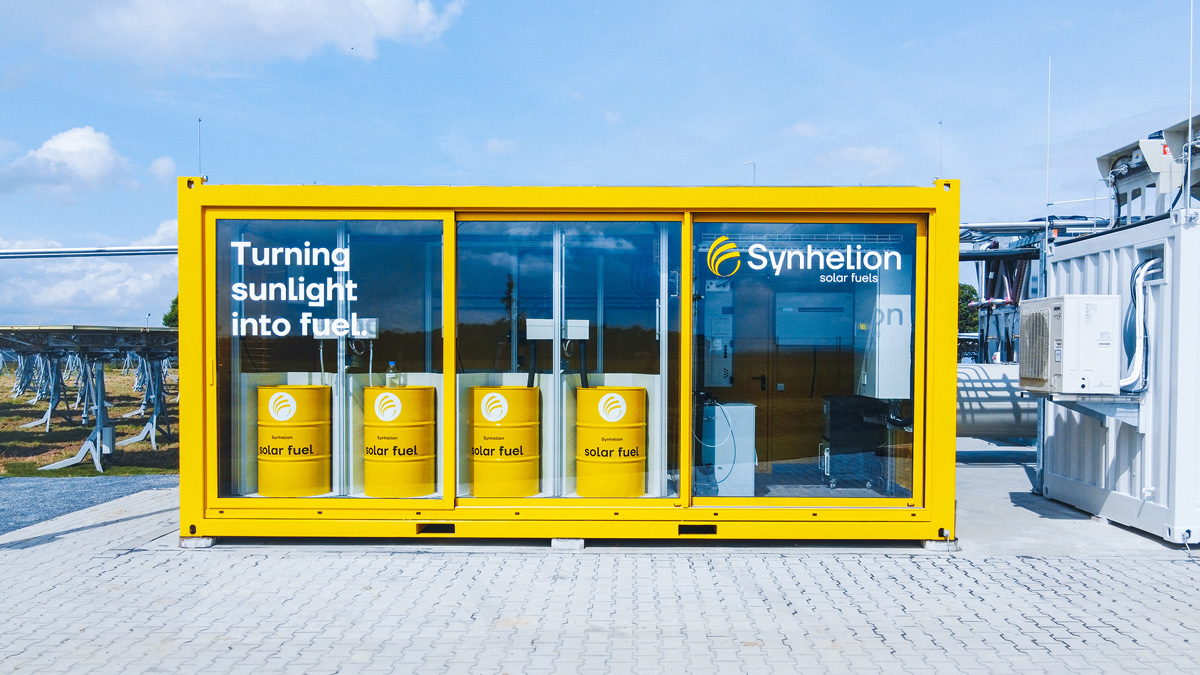From pv magazine Spain
Synhelion, a Swiss company that claims to be a global pioneer in the field of sustainable solar fuels, has developed a technology to produce next-generation synthetic fuels from solar energy.
Carmen Murer, a spokesperson for Synhelion, explained the process to pv magazine: “We use solar heat directly, without the need to convert it into electricity. A field of heliostats (mirrors) concentrates solar radiation on our receiver, located on a solar tower. The solar receiver provides unprecedented process heat in excess of 1,500 C. The heat generated is fed into our thermochemical reactor, which drives the thermochemical processes for the production of syngas, a mixture of H2 and CO.”
“We can produce any type of solar fuel: kerosene, gasoline, diesel, methanol, hydrogen, synthetic crude oil and many more. This is possible because we produce hydrocarbon chains and fuels are nothing more than hydrocarbon chains of different lengths,” the company adds.
In June 2024, Synhelion opened the DAWN plant in Jülich, Germany, which it says is the world's first industrial plant for the production of synthetic fuels from solar energy. The company says its technology for producing solar fuels is ready for large-scale production.

Image: Synhelion
DAWN has a 20-meter-high solar tower and a mirror field. The solar tower contains a solar receiver, a thermochemical reactor, and a thermal energy accumulator that allows solar fuel to be produced 24 hours a day. The construction of DAWN has been made possible thanks to Synhelion's investors and funding from the Energy Research Program of the German Federal Ministry for Economic Affairs and Climate Action.
In 2025, Synhelion will begin construction of its first commercial plant in Spain, called RISE. It will have a production capacity of 1,000 tons of solar fuel per year, including renewable kerosene, diesel and gasoline. Solar fuel production is scheduled to begin in 2027. The RISE plant will produce solar kerosene for airplanes, diesel for ships and trucks, and gasoline for cars.
This Monday, the Swiss automotive company AMAG Group signed a long-term purchase agreement for solar gasoline with Synhelion. From 2027, AMAG Group will purchase 50,000 litres of solar fuel per year produced at the RISE plant in Spain to reduce CO2 emissions from its current fleet.
Synhelion explains that its solar fuels are a “drop-in” technology, meaning they can replace fossil fuels without the need to modify the existing global fuel infrastructure and are compatible with existing internal combustion engines and jet engines. Regarding price, the company states that “our goal is for the production cost to be less than €1 per litre in the next 10 years.”
In 2023, Synhelion and Cemex launched the world's first solar cement plant, which has been producing on an industrial scale since 2023. The pilot project was installed at IMDEA Energía's Very High Concentration Solar Tower, located in Móstoles.
This content is protected by copyright and may not be reused. If you want to cooperate with us and would like to reuse some of our content, please contact: editors@pv-magazine.com.



By submitting this form you agree to pv magazine using your data for the purposes of publishing your comment.
Your personal data will only be disclosed or otherwise transmitted to third parties for the purposes of spam filtering or if this is necessary for technical maintenance of the website. Any other transfer to third parties will not take place unless this is justified on the basis of applicable data protection regulations or if pv magazine is legally obliged to do so.
You may revoke this consent at any time with effect for the future, in which case your personal data will be deleted immediately. Otherwise, your data will be deleted if pv magazine has processed your request or the purpose of data storage is fulfilled.
Further information on data privacy can be found in our Data Protection Policy.